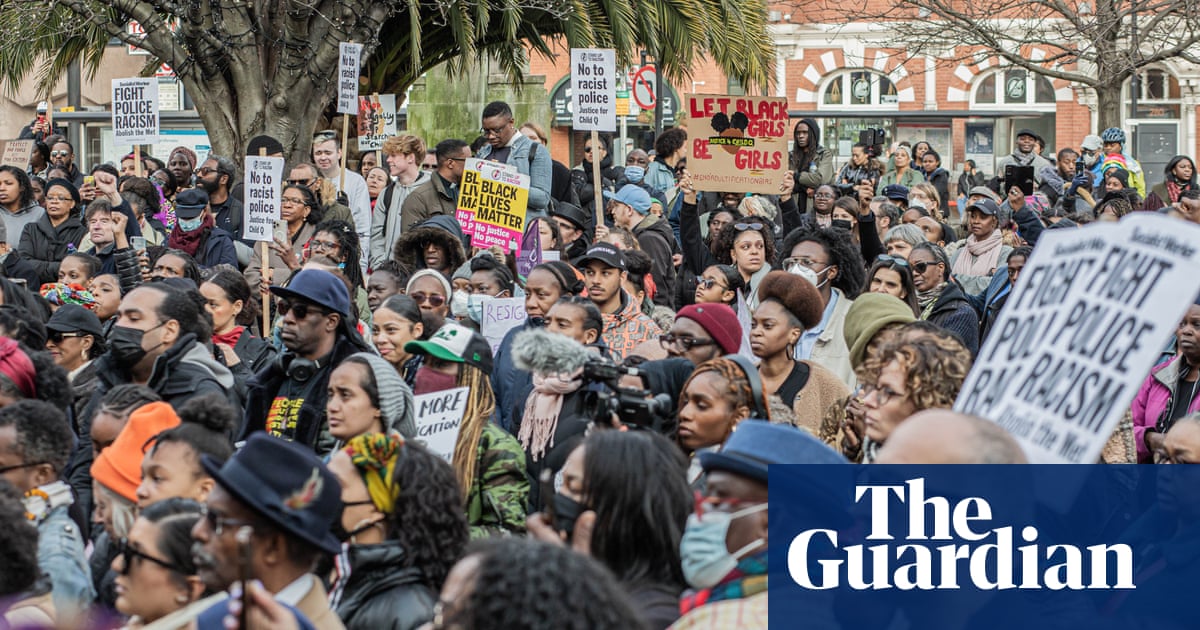
Black children are four times more likely to be strip-searched by police officers across England and Wales than their white counterparts, according to the latest nationwide figures disclosed by a watchdog.
The children’s commissioner also found that children under the age of 15 are a bigger proportion of those subjected to intimate searches, official figures from the year to June 2023 showed. Fewer than half of all searches of children in that year (45%) were conducted in the presence of an appropriate adult.
A report released on Monday also found that nearly nine out of every 10 of searches [88%] conducted by England and Wales’s 44 forces were trying to find drugs.
It said that over the five years to June 2023, children as young as eight have been strip-searched every 14 hours by police in England. More than 3,000 intimate procedures were conducted on children between January 2018 and June 2023.
In response to the report, the police made a stark admission and said that “too many strip searches carried out are unnecessary, unsafe and under-reported”.
The practice of child strip searches prompted a national outcry after the Child Q scandal, when it emerged in 2022 that a 15-year-old black girl was strip-searched at school for drugs in east London. No cannabis, the grounds for the search, was found.
Assistant chief constable Andrew Mariner, the National Police Chiefs’ Council lead for stop and search, said: “Two years on from the shocking case of Child Q, we are seeing progress being made. I welcome this shift, and I am cautiously optimistic about the potential to overcome entrenched systemic challenges, but there is still urgent work to be done: too many strip searches carried out are unnecessary, unsafe and under-reported.
“Today’s research serves as a stark reminder that this is not an isolated issue in the capital. A much higher threshold should be met before a child is subjected to what we know can be a traumatising search.
“We need a culture of trust to be built between children and the police, so it’s vital that improvements continue, with fewer searches carried out, better data recording when they do, and that good practice and improvements are identified and modelled across the country.”
Police promised a new review of the rules when officers use their powers to stop a person: “We will also conduct a full review of our authorised professional practice in respect of stop and search. This detailed and wide-ranging review will seek to examine all aspects of stop and search, including strip searches, and make any necessary changes to policing policy and national practices.”
The Home Office says strip searches play an important role in protecting the public and that strict safeguards are in place.
Rachel de Souza, the children’s commissioner, said urgent procedural change was needed to tackle widespread racial disparity, and to ensure that children are not left at risk during these intimate searches.
“Throughout England and Wales, police continue to strip-search children as part of stop and searches, revealing concerning practices and widespread failure to comply with safeguarding procedures designed to protect children.
“Senior police officers have shared with me that there will be certain, limited times when an immediate risk of harm means that a search of this nature is both appropriate and necessary.
“My firm recommendation is that this should only be the case where there is a clear and immediate danger to the child or others. However, the majority of searches are still conducted on suspicion of drugs and nearly half result in no further action.
“Two years on from the shocking case of Child Q in 2022, we are seeing some green shoots of progress in how the police carry out and record strip-searches on children.
“Today’s research serves as a stark reminder that this is not an isolated issue in the capital. A much higher threshold should be met before a child is subjected to a humiliating and traumatising intimate search.”
Monday’s report is the third from de Souza in her work to investigate the use of strip-searching powers by police forces on children.
after newsletter promotion
It confirms that the numbers of strip-searches are lower overall, especially in London, while the majority of police forces are reporting changes to procedures and a fall in the proportion of black children subjected to strip searches between 2022 and 2023.
However, the report still found widespread failure to comply with safeguarding processes designed to protect children during intimate searches.
These include concerns that:
-
Of the children strip-searched between 2022 and 2023, 27% were black, while black children form 6% of the child population of England and Wales. For white children, the corresponding percentages were 59% and 74%. The report notes that this is an improvement on figures between 2018 and 2023, when black people were six times more likely to be searched.
-
Between July 2022 and June 2023, a parent, carer or social worker could not be confirmed to be present in 45% of searches.
-
During the same period, the majority of searches – 88% – were conducted on suspicion of drugs, with just 6% on suspicion of carrying weapons or blades. Strip searches should, de Souza said, be carried out on children only where there is a clear and immediate risk of harm to themselves or to others.
-
The proportion of searches conducted involving a child aged 15 or younger has increased from 23% to 28% between July 2022 and June 2023, compared with the previous four years.
Child Q was ordered to undress after being wrongly suspected of carrying drugs. The search was conducted after teachers called police, while the girl was on her period, without her parents being contacted and with no other adults present.
The search sparked days of protests in 2022 outside the girl’s east London school and was said to have left her traumatised and humiliated.
The Metropolitan police apologised and the Independent Office for Police Conduct has since called for a substantial review of policing powers under the laws relating to the strip searches of children, to improve safeguarding and prioritise the welfare of minors.
De Souza’s latest report said there were signs of improvement, including lower numbers of strip searches overall and, especially in London, the majority of police forces reporting changes to procedures, and a fall in the proportion of black children subjected to strip searches between 2022 and 2023.
In her 2023 report, de Souza heard from a male victim of child criminal exploitation and county lines who was arrested multiple times between the ages of 13 and 18 and strip-searched up to four times in custody. He was first strip-searched in custody aged 13, without an appropriate adult present, having been arrested in school.
A Metropolitan police spokesperson said: “We have a duty to do everything we can to prevent children in London from being used in the supply of drugs or involved in knife crime as either victims or offenders.
“We know these searches are intrusive and should only be used where there is a risk of serious harm to the child or others, and where used we must ensure that children are protected and safeguarded.
“We introduced a new policy to improve these types of searches in May 2022, including the requirement of inspector authorisation, mandatory safeguarding referrals and new guidance for officers.”
Source: theguardian.com


















